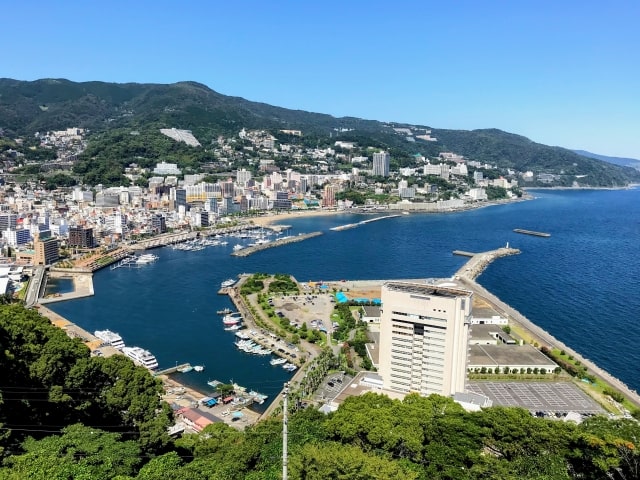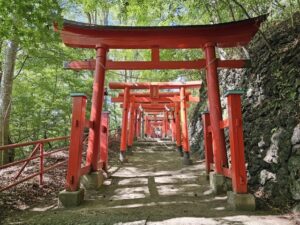In recent years, Japan has seen a significant increase in tourism as the world begins to recover from the effects of the pandemic. One of the emerging trends is what is known as “Hotel Vacation” or “Staycation” (referred to in Japan as “Hokansu”), where tourists spend their time relaxing within the confines of their hotels, taking advantage of all the amenities without needing to venture outside. While this is a convenient option for travelers, it often has a limited impact on the local economy. Many of Japan’s traditional local restaurants and shops are missing out on the benefits of tourism, which are instead going to large, foreign-owned businesses.
This article delves into the reality of Japan’s tourism industry, the uneven distribution of economic benefits, and why you should make an effort to explore local businesses to get a true taste of Japan.
The Success and Challenges of Attracting Tourists
Japan has successfully attracted millions of foreign tourists in recent years, and major destinations like Tokyo, Kyoto, and Okinawa continue to see an influx of visitors. These popular areas boast high hotel occupancy rates, which certainly benefits the hospitality industry. However, a significant portion of the profits tends to go to large hotel chains or foreign-owned resorts, leaving local, family-owned shops and restaurants struggling to stay afloat.
Take Kyoto, for example. Even though foreign tourists have increased, many traditional local businesses are not seeing the economic benefits. This is because tourists often stay in large hotels, dine in hotel restaurants, and shop at big-name international brands, rarely venturing out to explore the local businesses that give Japan its unique charm.
The Rise of “Hokansu” and Its Impact on Local Economies
“Hokansu” has become a trend in Japan’s tourism scene, especially among tourists looking to relax. These travelers spend their time exclusively in their hotels, enjoying spas, restaurants, and other facilities that provide everything they need. While convenient, this style of vacation keeps tourists from experiencing the local culture and supporting small businesses in the area.
In places like Atami or Kyoto, tourists are more inclined to stay in their hotel and enjoy everything within it, leaving local eateries and souvenir shops without customers. This has caused a discrepancy between the growing number of tourists and the lack of economic growth in these areas. Essentially, local businesses are missing out on the financial benefits brought by tourism.
Why Local Businesses Are Missing Out on the Benefits
One of the main reasons local businesses aren’t benefiting as much as they should is because tourists are gravitating toward what they know—internationally recognized hotel brands and restaurants. Additionally, language barriers can be a challenge for tourists who may feel uncomfortable visiting local shops where English isn’t commonly spoken. This is especially true in smaller towns or rural areas where fewer people may be able to communicate in English.
However, with the rise of translation apps and other communication tools, it’s easier than ever for tourists to navigate these local spaces. Travelers can use these apps to order food, ask questions, or even learn about the local culture.
Tips for Tourists: Experience the Real Japan
For those visiting Japan and looking to have a more authentic experience, here are a few tips to help you navigate local shops and eateries:
- Explore Beyond the Hotel – While it’s tempting to stay in the comfort of your hotel, venturing out to local restaurants and shops is the best way to experience the true essence of Japan. Each town has its own unique flavor, and the small, family-run businesses offer some of the most memorable food and experiences.
- Language Barriers? No Problem! – Even if the local staff doesn’t speak English, modern technology makes communication easier. Translation apps like Google Translate can help you order food, ask for recommendations, or just engage in friendly conversation. Don’t let the language barrier stop you from enjoying the local culture.
- Consider Hiring a Local Guide – If you’re feeling uncertain about exploring on your own, hiring a Japanese tour guide can make a big difference. Local guides not only help with translation but can also show you hidden gems that you wouldn’t find on your own, ensuring a richer and more meaningful experience.
Discover the True Japan
Tourism in Japan continues to grow, but the economic benefits aren’t always evenly distributed. To experience the real Japan, it’s important to go beyond your hotel and explore local businesses. Whether you use translation apps or hire a local guide, taking that extra step to visit traditional restaurants and shops will not only enrich your travel experience but also support the local economy. So, the next time you find yourself in Japan, step outside your hotel and discover what the local community has to offer.









Comments